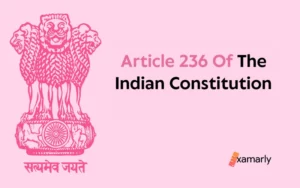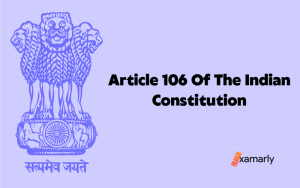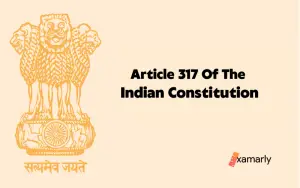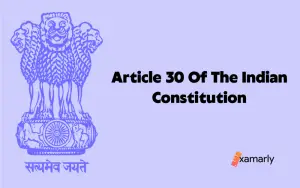The 29th amendment of the Indian Constitution resulted in the expansion of the ninth schedule of the Indian Constitution. This comprised laws from Kerala that emphasized land reform.
This article is about the Twenty-ninth Amendment of the Indian Constitution which will assist you in your UPSC examination.
29th Amendment Of Indian Constitution 1972
On June 9, 1972, the 29th Amendment of the Indian Constitution came into effect. This amendment was enacted in the twenty-third year of the Republic of India.
The Indian Constitution’s ninth schedule has been expanded as a result of the 29th constitutional amendment.
This included regulations from Kerala that placed a strong emphasis on land reform. As the 29th amendment to the Constitution, these two acts were added to the list: The Kerala Land Reforms (Amendment) Act, 1969 (Kerala Act 35 of 1969) and The Kerala Land Reforms (Amendment) Act, 1971 (Kerala Act 25 of 1971).
Kesavnanda Bharti Vs. State of Kerala
The 29th Constitutional Amendment is connected to Kesavnanda Bharti v. State of Kerala, one of India’s most well-known cases.
The 29th Constitutional Amendment’s legality was questioned in a case filed by the petitioner.
A portion of this was Kerala’s Land Reforms, which allowed the government to seize land that belonged to the Mutt, of which the petitioner was a member. While the Court was still debating this matter, the government of Kerala passed the Act.
Along with the 29th Constitutional Amendment, the validity of the 24th, and 25th Constitutional Amendments was also questioned in this case.
The petitioners claimed that the revisions directly impacted their fundamental rights. The idea of the fundamental structure of the Constitution was developed as a result of this crucial decision.
An overwhelming majority of seven judges, out of a total of 13, ruled in favour of the other six judges, upholding the 29th Constitutional Amendment’s legitimacy. Because of this, it should be emphasized that the validity was not upheld completely.
Also Read: 25th Amendment Of Indian Constitution
Objects And Reasons
The Constitution (Thirty-second Amendment) Bill of 1972, which became the Constitution (Twenty-ninth Amendment) Act of 1972, included a Statement of Purposes and Reasons.
The key land reform law in the State of Kerala is the Kerala Land Reforms Act, 1963 (Act 1 of 1964). This was mentioned in the Constitution’s ninth schedule.
The State Government experienced considerable practical difficulties during the implementation stage.
The Kerala Land Reforms (Amendment) Act, 1969 (Act 35 of 1969) and the Kerala and Reforms (Amendment) Act, 1971 (Act 25 of 1971) significantly revised the Act in order to address them.
Certain crucial provisions of the original Act as amended were challenged in the High Court of Kerala and the Supreme Court.
This resulted in an environment of doubt over the successful implementation of land reforms. Despite generally supporting the scheme of land reform plan outlined in the original Act as amended, the High Court of Kerala has invalidated a few vital provisions.
The impacted parties had appealed to the Supreme Court even with regard to the High Court’s rulings upholding certain clauses.
Some people also filed initial petitions with the Supreme Court against some Act provisions.
The Supreme Court released its decision on April 26 and 28, 1972. They agreed with the High Court to invalidate a few key elements, but overall they upheld the scheme of land reforms as it was laid forth in the original Act as amended.
On the implementation of the State’s land reform initiative, it is feared that this could have far-reaching negative impacts.
Additionally, several of the laws that have been invalidated or rendered ineffective will have a negative impact on thousands of tenants.
Furthermore, it is anticipated that some observations made by the Supreme Court in its decisions may result in an increase in litigation.
In addition, appeals have been filed with the Supreme Court challenging the Kerala High Court’s decision to nullify several significant modifications to the primary Act, including sections 4A (1)(a) and (b), 7, 7D(1), and 103.
The Kerala Land Reforms (Amendment) Act, 1969, and the Kerala Land Reforms (Amendment) Act, 1971, should therefore be listed in the Constitution’s Ninth Schedule.
They must be given the protection outlined in Article 31B, as well as any uncertainty concerning their validity is removed. The Bill seeks to attain this end.
Provisions Made by the 29th Amendment
29th Amendment of the Indian Constitution amended the ninth schedule. In the Constitution’s ninth schedule, Section 2 adds the following two entries:
- 65. The Kerala Land Reforms(Amendment) Act,1969(Kerala Act 35 of 1969).
- 66. The Kerala Land Reforms(Amendment) Act, 1971(Kerala Act 25 of 1971).
Conclusion
Since 9 June 1972, the 29th Amendment has been in effect. These updates schedule 9. Schedule 9 of the Constitution should be used to list land reform laws and modifications to such laws.
The 29th Constitutional Amendment is related to one of India’s most well-known cases, Kesavnanda Bharti v. the State of Kerala.






